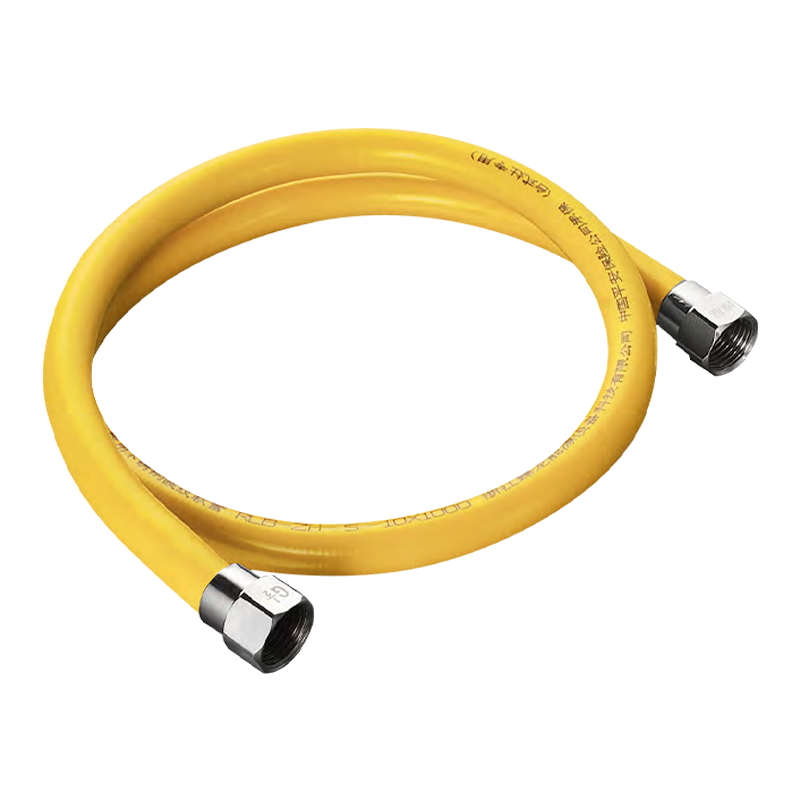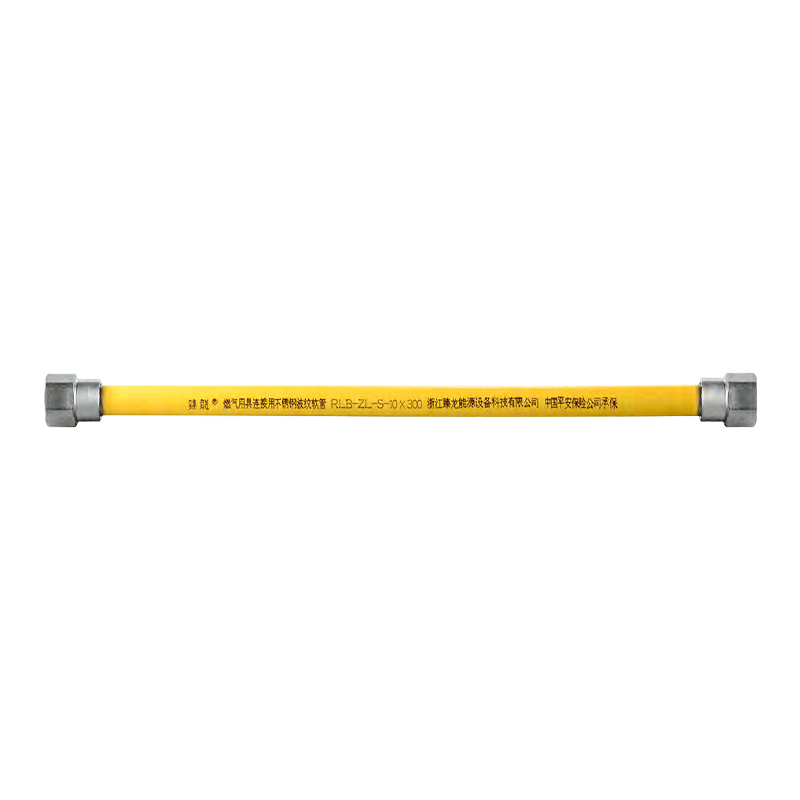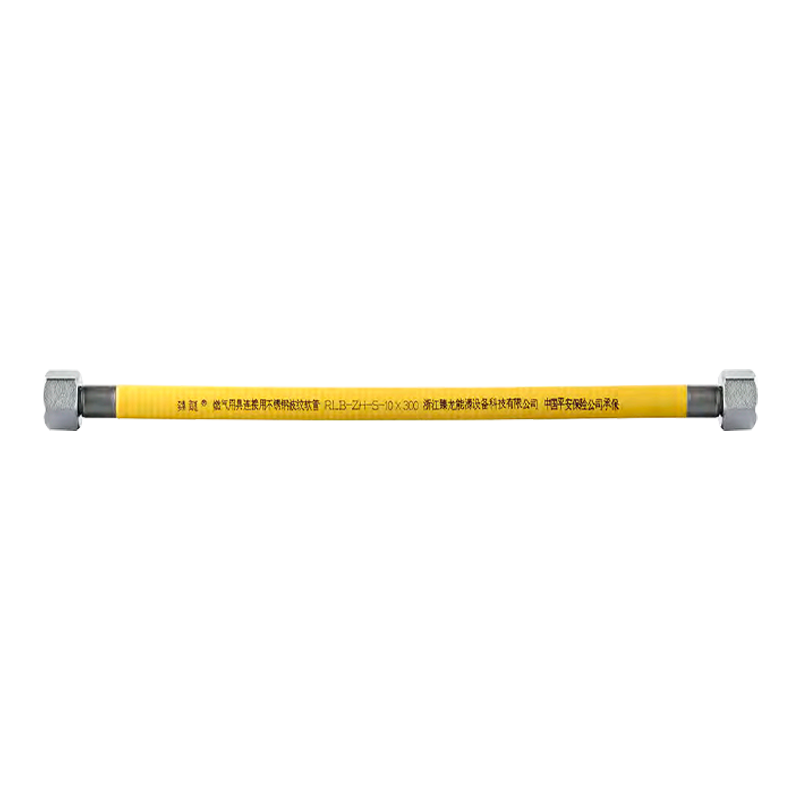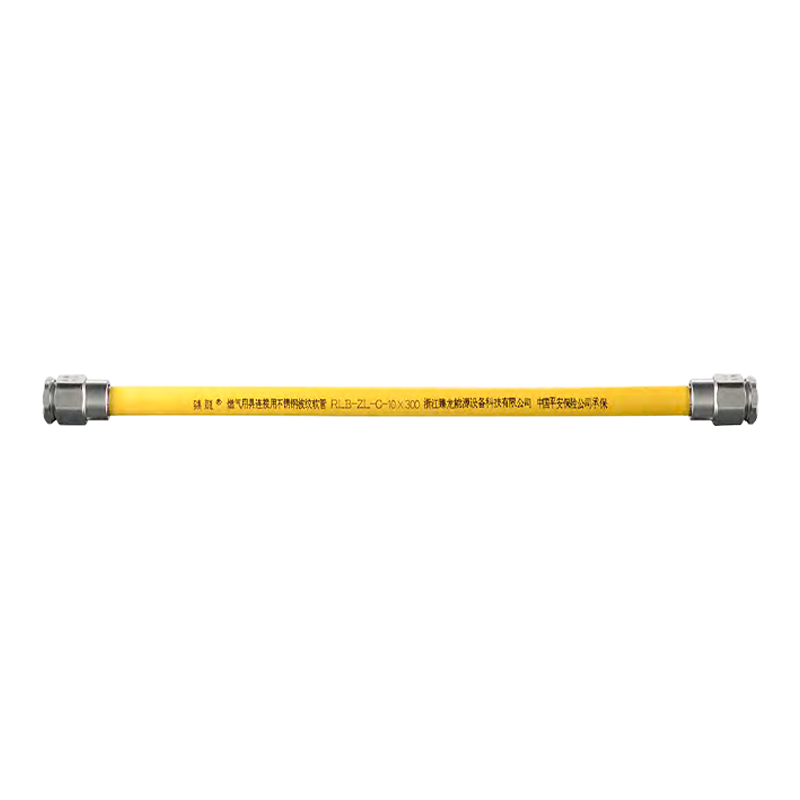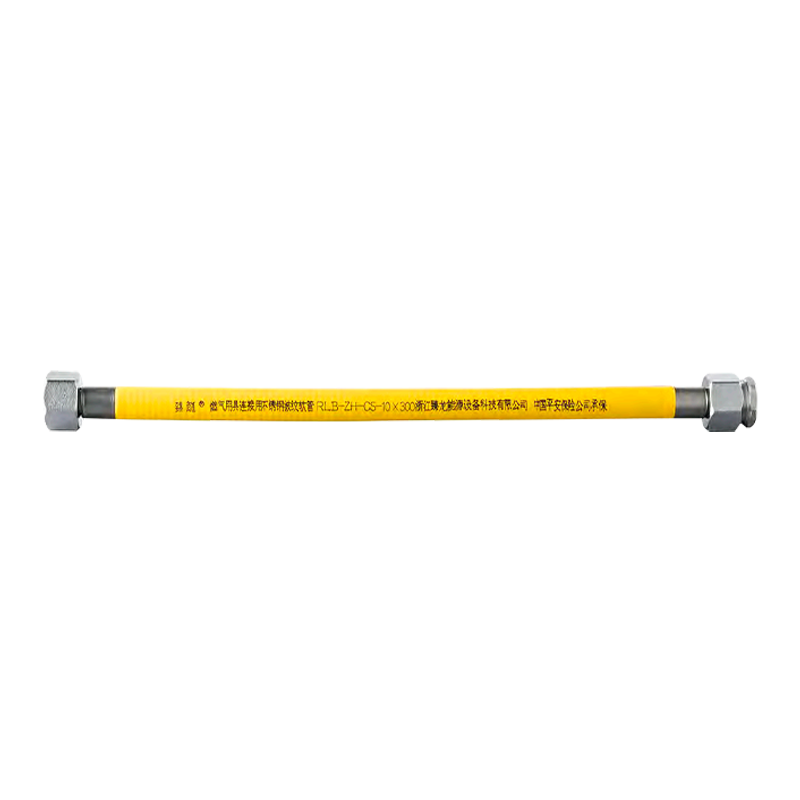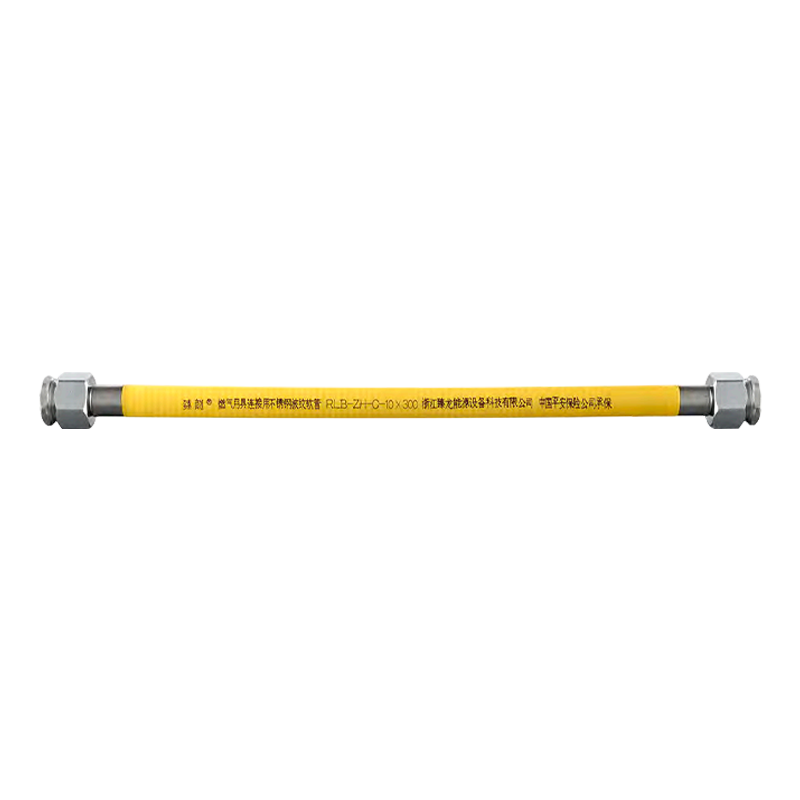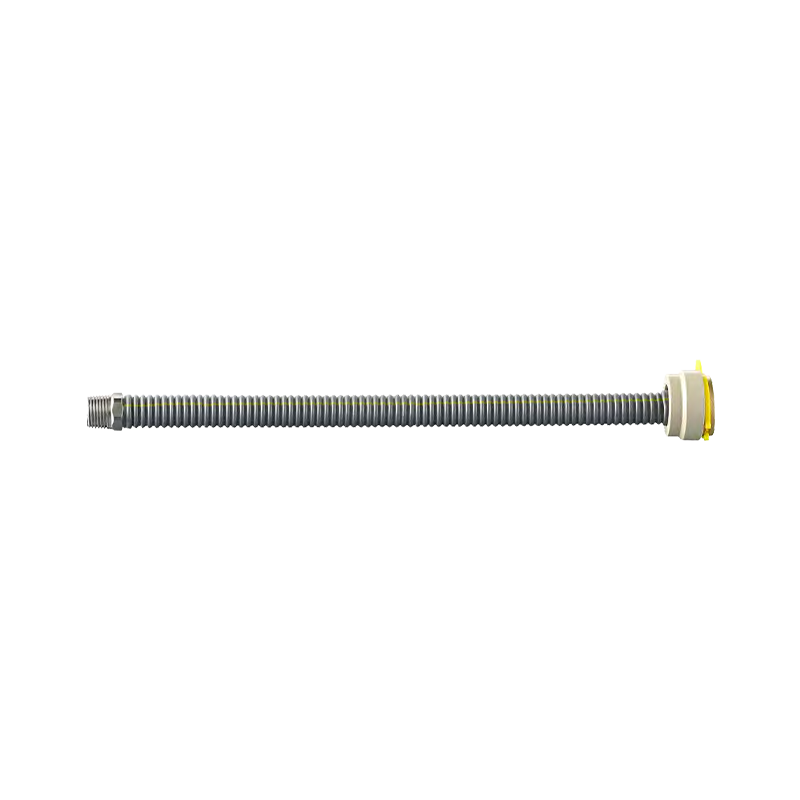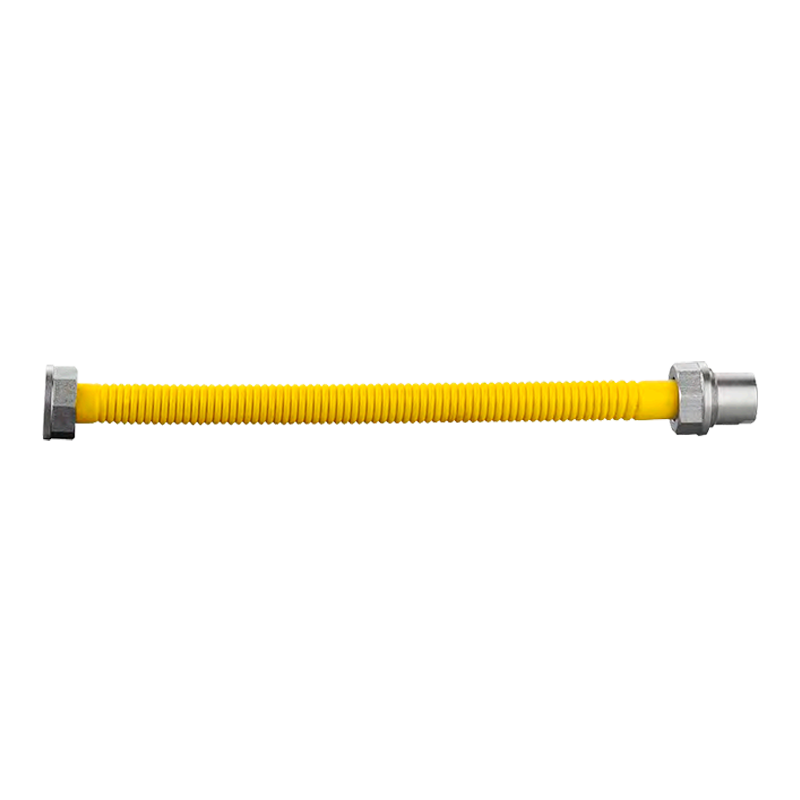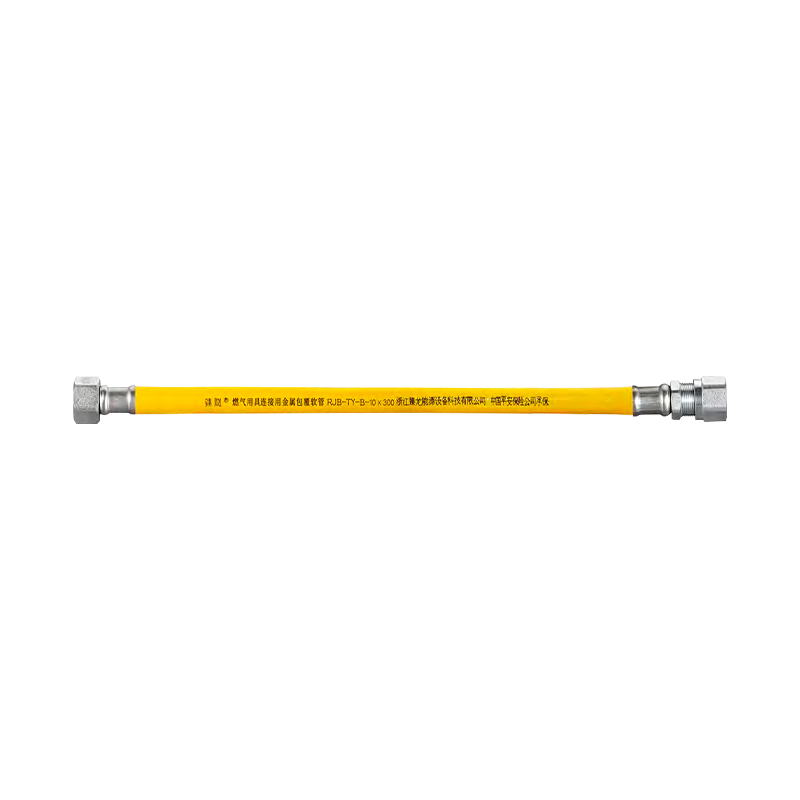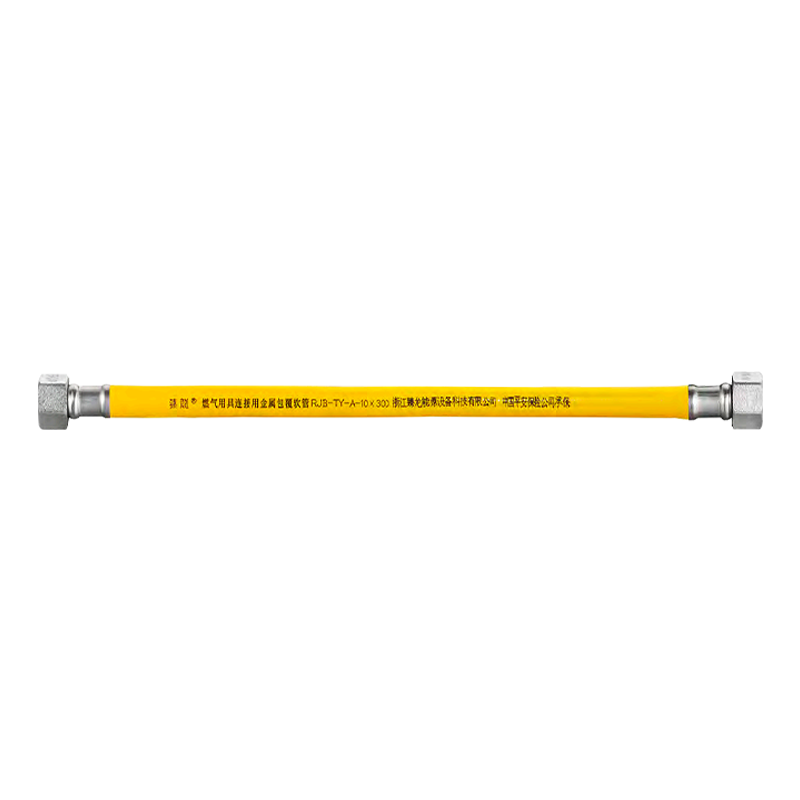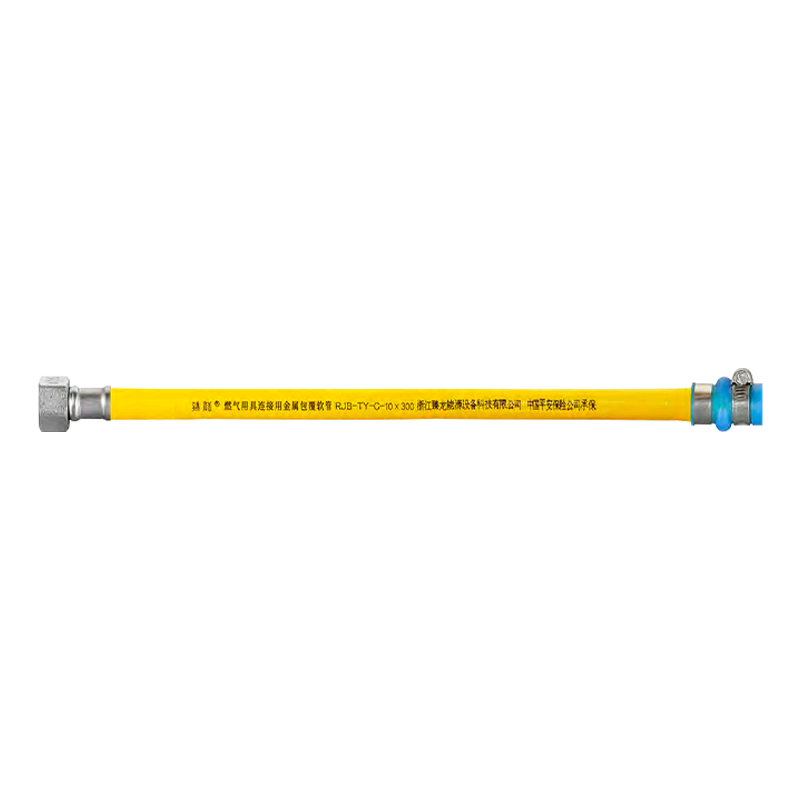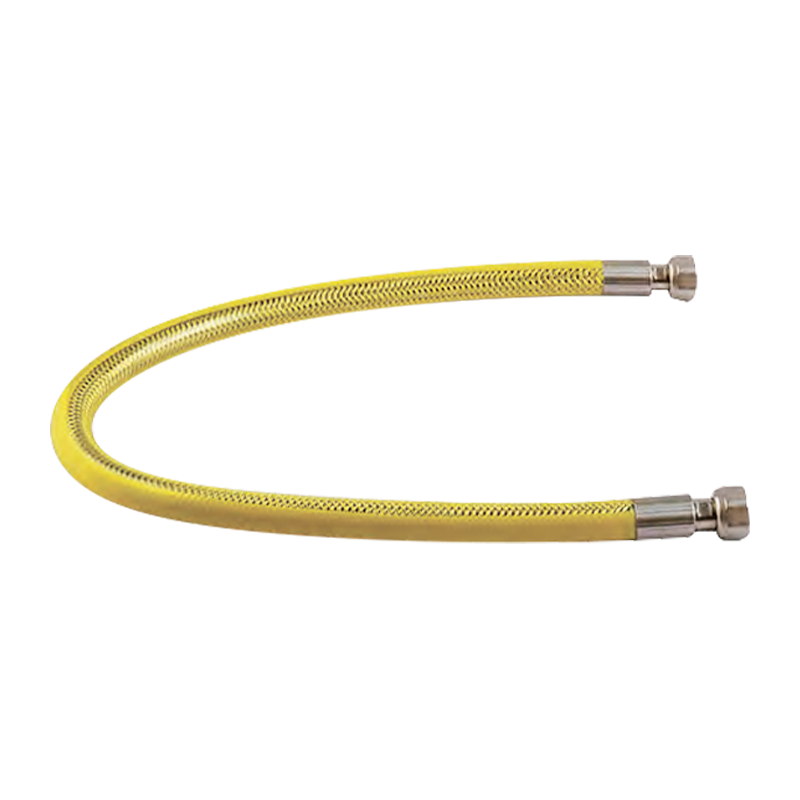Content
- 1 1. Hidden dangers of rubber hoses: Why must they be eliminated?
- 2 2. Four major safety advantages of stainless steel bellows
- 3 3. How to correctly purchase and install stainless steel bellows?
- 4 4.Rubber hose vs. stainless steel bellows: Gas connection pipe comparison chart
- 5 5. Stainless Steel Bellows FAQ (Frequently Asked Questions)
1. Hidden dangers of rubber hoses: Why must they be eliminated?
Traditional rubber hoses have the following fatal defects:
- Easy to age: They will harden, crack and lose their sealing properties in about 2 years.
- Not resistant to high temperatures: They are easily deformed by long-term heat, increasing the risk of leakage.
- Afraid of rat bites: Rubber materials are easily bitten by rats, causing gas leakage.
- Unstable connection: The clamp is not firmly fixed and is easy to loosen and fall off.
2. Four major safety advantages of stainless steel bellows
① Super corrosion resistance, lifespan of up to 8-10 years
Using 304/316 stainless steel, it is corrosion-resistant and oxidation-resistant, and is not affected by kitchen fumes and humid environments. Its service life far exceeds that of rubber hoses (national regulations require that gas connection pipes be used for no less than 8 years).
② Explosion-proof and pressure-resistant, high and low temperature resistant
Temperature range: -20℃ to 150℃, suitable for various extreme environments.
Strong pressure resistance: can withstand pressure above 0.4MPa, which is much higher than the household gas standard (0.01-0.1MPa).
③ Anti-rat bite and anti-fall design
Metal braided layer: cannot be bitten by rats, eliminating the risk of animal damage.
Threaded interface: metal nut + sealing gasket is used, which is more firmly fixed than the clamp of rubber tube.
④ Flexible and bendable, easy to install
Stainless steel bellows have a certain flexibility and can adapt to different installation angles to avoid stress problems caused by hard pipe connection.
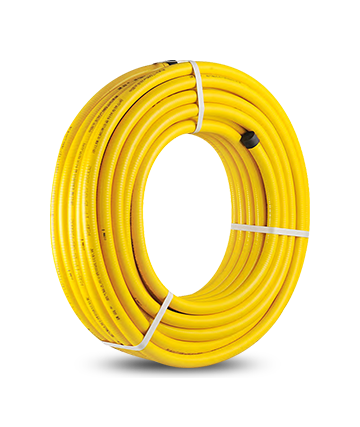
3. How to correctly purchase and install stainless steel bellows?
Purchase points
Recognize the national standard: choose products that meet the GB/T 26002-2020 standard.
Material selection: 304 stainless steel (sufficient for home use) or 316 stainless steel (more corrosion resistant).
Suitable length: not too long (generally not more than 2 meters) to avoid bending and affecting airflow.
Installation precautions
Must be installed by professional gas company personnel and cannot be operated by yourself.
Check the sealing: After installation, use soapy water to check whether the interface is leaking.
Regular inspection: Check the pipeline status every 1-2 years to ensure that there is no deformation or rust.
4.Rubber hose vs. stainless steel bellows: Gas connection pipe comparison chart
|
Comparison items |
Rubber hose |
Stainless steel bellows |
|
Material and structure |
Ordinary rubber material, single-layer structure |
304/316 stainless steel + PVC protective layer, three-layer composite structure |
|
Service life |
18 months (need to be replaced every year) |
8-10 years (in line with the requirements of national standard GB55009-2021) |
|
High temperature resistance |
Easy to soften and catch fire (not resistant to high temperature) |
Temperature resistance -20℃~150℃, flame roasting only affects the outer layer of PVC |
|
Aging resistance |
Easy to become brittle, cracked, and hardened |
No aging problem, strong stability of metal material |
|
Anti-rat bite ability |
Easy to be bitten and damaged |
The metal layer cannot be bitten through |
|
Connection method |
Clamp fixed, easy to fall off |
Threaded thread connection, can withstand adult pulling |
5. Stainless Steel Bellows FAQ (Frequently Asked Questions)
Will the stainless steel bellows leak?
Rarely leaks if properly installed:
The threaded thread + sealing gasket is used, which is more secure than the clamp of the rubber tube;
It must be installed by professionals of the gas company and the sealing must be tested with soapy water.
Can the stainless steel bellows be installed by yourself?
Self-installation is prohibited!
Gas pipelines involve safety and must be operated by licensed gas company personnel;
Self-installation may cause leakage or even explosion.
Can the stainless steel bellows be bent?
It can be bent moderately, but repeated bending is prohibited:
The natural curvature must be maintained during installation to avoid right-angle bending that affects the airflow;
Excessive bending may cause metal fatigue and reduce the service life.

 English
English 中文简体
中文简体 Español
Español عربى
عربى


